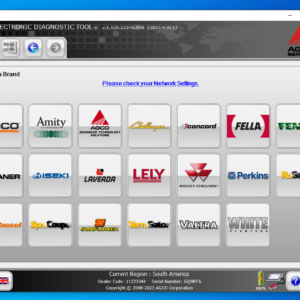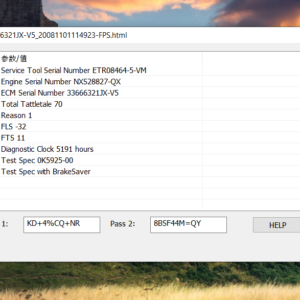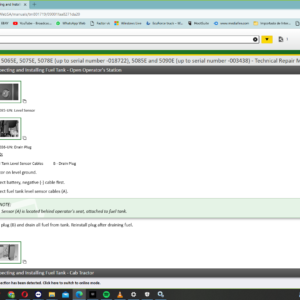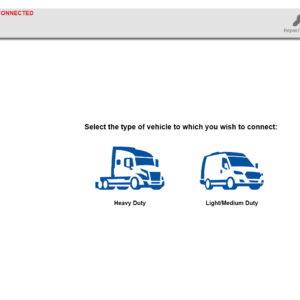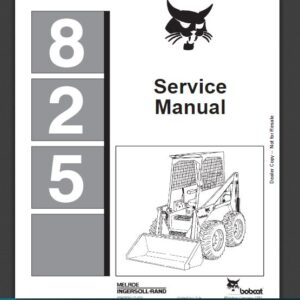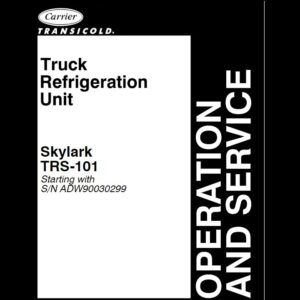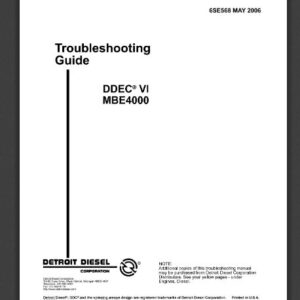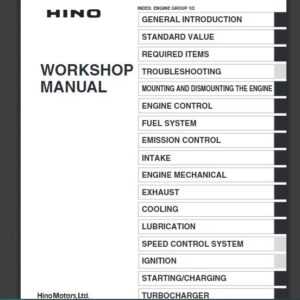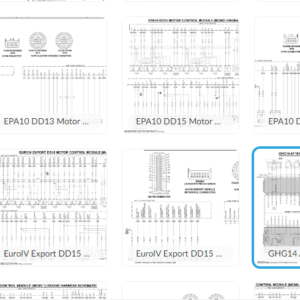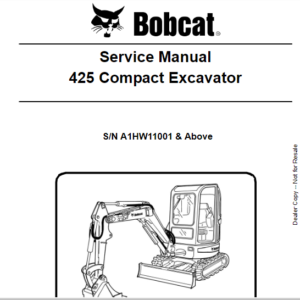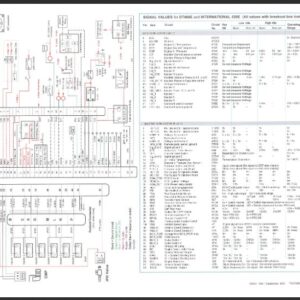Allison 1000 & 2000 Gen 5 Fault Code:P2789 Clutch Adaptive Learning at Limit
CIRCUIT DESCRIPTION:
Clutch Life Monitor is part of OEM 5th Generation Prognostics functionality. When enabled in the TCM, prognostic logic determines transmission health with clutch adaptive volumes. When the transmission is new the TCM stores the initial clutch volumes. Throughout the life of the transmission these initial volumes are compared to the current volumes and are correlated to free running clearance, allowing transmission life expectancy to be determined. If the TCM determines that clutch volumes are out of range for a specific clutch, a J1939 message is sent to a dash mounted SERVICE TRANS indicator lamp informing the driver the transmission needs inspection. If the SERVICE TRANS indicator lamp is ignored for 100 hours, a CHECK TRANS light illuminates and DTC P2789 sets.
NOTE: This feature was designed to provide advanced notification of clutch system concerns to help prevent internal component damage typically associated with clutch fatigue as well as provide the end user with an opportunity to manage downtime. This tool is not intended to replace current OEM troubleshooting tools and methods, but to act as a supplemental guide to speed the identification of specific transmission concerns.
ACTION TAKEN WHEN THE DTC SETS:
1. DTC P2789 is stored in the TCM history.
2. The CHECK TRANS light illuminates.
CONDITIONS FOR CLEARING THE DTC:
Use the diagnostic tool to clear the DTC from the TCM history. The TCM automatically clears the DTC from the TCM history if the vehicle completes 40 warm-up cycles without the DTC recurring.
DIAGNOSTIC AIDS:
1. Low oil level can result in unnecessary increases in clutch volumes leading to a false reading. Always verify oil level before removing the transmission.
2. It is possible for weak front pump, internal valve body, or trim solenoid leaks to falsely increase clutch volumes, triggering this code. Always inspect for secondary signs of clutch damage to confirm your diagnosis before removing the transmission for service.
3. Erratic speed traces, due to intermittent wiring concerns or defective speed sensor performance, may allow clutch volumes to increase without DTCs setting, leading to a false triggering of this DTC. If this concern is present look for all clutches to show “Not Okay”. Normally, one or two clutches would show “Not Okay” if an actual clutch system concern were indicated. Always inspect for secondary signs of clutch damage to confirm your diagnosis before removing the transmission for service.
4. This feature tests clutch volumes on C1, C2, C3, C4, and C5 only.
5. When transmission clutches are replaced, reset the TCM and clear any unadapted shifts and health prognostics.
-
CAT CDVR PC Software – Caterpillar Digital Voltage Regulator (CDVR) WINDOWS 10
CAT $45.00Rated 0 out of 5
-
PACCAR Electronic Service Analyst 5.4.3.0 SW files 27.03.2021 software trucks
PACCAR $60.00Rated 0 out of 5 -
Scania SDP3 2.48.6 Diagnosis & Programming for VCI 3 VCI3 without Dongle
Scania $30.00Rated 0 out of 5 -
JOHN DEERE SERVICE ADVISOR 5.3.225 DATABASE AG + CF ENGLISH 2023
John Deere $250.00Rated 0 out of 5
Related products
-
Allison 1000 & 2000 Gen 4 Fault Codes: P2810 Solenoid G Electrical
1000 & 2000 Gen 4 $50.00Rated 0 out of 5 -
Allison 1000 & 2000 Gen 4 Fault Codes: P0875 Transmission Reverse Pressure Switch Circuit Malfunction
1000 & 2000 Gen 4 $50.00Rated 0 out of 5 -
Allison 1000 & 2000 Gen 4 Fault Codes: P2773 Torque Control Request Ignored – ECM/TCM
1000 & 2000 Gen 4 $50.00Rated 0 out of 5 -
Allison 1000 & 2000 Gen 4 Fault Codes: U0100 CAN Bus ECM Error
1000 & 2000 Gen 4 $50.00Rated 0 out of 5 -
Allison 1000 & 2000 Gen 4 Fault Codes: U1096 J1850 (Class 2) IPC Controller State of Health Failure
1000 & 2000 Gen 4 $50.00Rated 0 out of 5 -
Allison 1000 & 2000 Gen 4 Fault Codes: P0880 TCM Supply Voltage
1000 & 2000 Gen 4 $50.00Rated 0 out of 5 -
Allison 1000 & 2000 Gen 4 Fault Codes: U1000 Class 2 Loss of Serial Data Communication
1000 & 2000 Gen 4 $50.00Rated 0 out of 5 -
Allison 1000 & 2000 Gen 4 Fault Codes: P0123 Pedal Position Sensor Circuit High Voltage
1000 & 2000 Gen 4 $50.00Rated 0 out of 5 -
Allison 1000 & 2000 Gen 4 Fault Codes: P1891 Engine Throttle Position Sensor Pulse Width Modulation (PWM) Signal Low Input
1000 & 2000 Gen 4 $50.00Rated 0 out of 5 -
Allison 1000 & 2000 Gen 4 Fault Codes: U1300 J1850 (Class 2) Serial Data Communication Link Low
1000 & 2000 Gen 4 $50.00Rated 0 out of 5 -
Allison 1000 & 2000 Gen 4 Fault Codes: P0873 Transmission Pressure Switch Solenoid E Circuit High
1000 & 2000 Gen 4 $50.00Rated 0 out of 5 -
Allison 1000 & 2000 Gen 4 Fault Codes: P2771 Four-Wheel Drive Switch Circuit
1000 & 2000 Gen 4 $50.00Rated 0 out of 5 -
Allison 1000 & 2000 Gen 4 Fault Codes: U0031 J1850 (Class 2) Serial Data Communication Link Low
1000 & 2000 Gen 4 $50.00Rated 0 out of 5 -
Allison 1000 & 2000 Gen 4 P0719 Brake Switch ABS Input Low
1000 & 2000 Gen 4 $50.00Rated 0 out of 5
-
SERVICE MANUAL International Engines DT466E & DT530E (1999 & Older)
INTERNATIONAL ENGINES $31.00Rated 0 out of 5

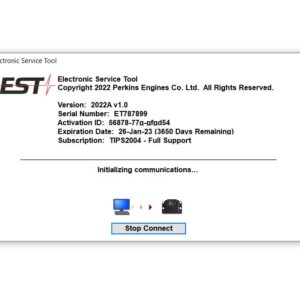
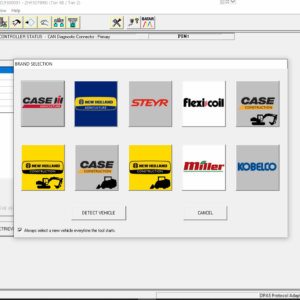
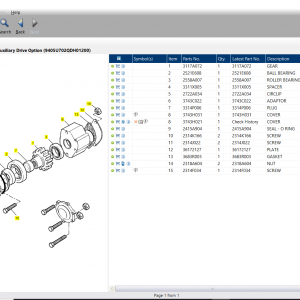

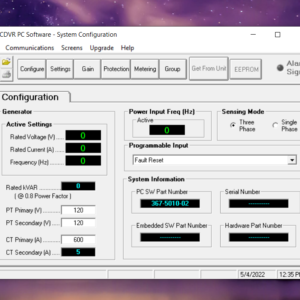
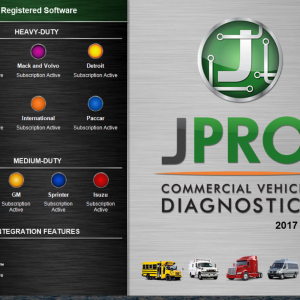

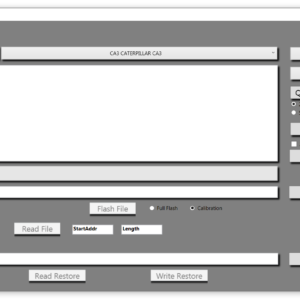

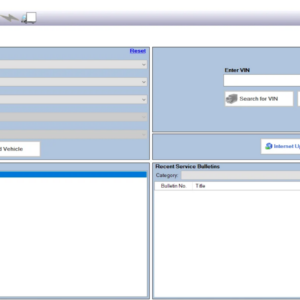
![Volvo Penta EPC 6 Offline VMware [12.2021] VMware](https://www.ecuforcetruck.com/wp-content/uploads/2022/11/VOLVO-PENTA-2021-A-300x300.jpg)

